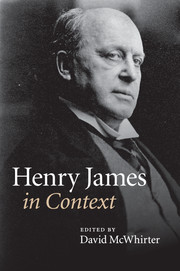Book contents
- Frontmatter
- Contents
- List of Illustrations
- Notes on Contributors
- Preface
- Abbreviations
- Chronology
- Part One Life and career, times and places
- Part Two Historical and cultural contexts
- Part Three Reception
- Chapter 37 Publishing history and contemporary reception
- Chapter 38 Critical response, 1916–1947
- Chapter 39 Critical response, 1947–1985
- Chapter 40 Recent criticism (since 1985)
- Chapter 41 Translation and international reception
- Further reading
- Index
- References
Chapter 38 - Critical response, 1916–1947
Published online by Cambridge University Press: 05 August 2014
- Frontmatter
- Contents
- List of Illustrations
- Notes on Contributors
- Preface
- Abbreviations
- Chronology
- Part One Life and career, times and places
- Part Two Historical and cultural contexts
- Part Three Reception
- Chapter 37 Publishing history and contemporary reception
- Chapter 38 Critical response, 1916–1947
- Chapter 39 Critical response, 1947–1985
- Chapter 40 Recent criticism (since 1985)
- Chapter 41 Translation and international reception
- Further reading
- Index
- References
Summary
When, just months before he succumbed to a series of strokes, Henry James chose to become a citizen of Great Britain and a loyal subject of George V, he unwittingly set the terms for his posthumous critical reception. With few exceptions, the significant works of James criticism in the first three decades after his death in 1916 voice contentious arguments about the author’s national allegiance and identity and their effect upon his literary preferences and aesthetics. Already anticipating this reaction, James’s lifelong friend William Dean Howells had wanted to forestall – or even pre-empt – the debate by writing a definitive tribute that he would call ‘The American James’, explicitly emphasizing the writer’s national fidelities. But death would claim Howells too (in 1920) before the essay was finished. The belated publication of its fragmentary beginning found no resonance in the prejudicial climate of cultural opinion that typified the United States in the post-war years.
Still, other writers and critics of formidable stature felt the same commemorative impulse. Even before Howells began to frame his essay, the modernist avant-garde (most notably T. S. Eliot and Ezra Pound) had acknowledged their debts to James in a special number of the Little Review (1918). The first of Eliot’s two brief essays in that issue bore the solemn heading ‘In Memory’, but even as he eulogized the Master he wanted to insist that no one ‘who is not an American can properly appreciate James’. Eliot’s second contribution, ‘The Hawthorne Aspect’, sought just as emphatically to ground James in a specifically American tradition. ‘The really vital thing, in finding any personal kinship between Hawthorne and James’, Eliot wrote, ‘is what James touches lightly when he says that “the fine thing in Hawthorne is that he cared for the deeper psychology, and that, in his way, he tried to become familiar with it”’. This, for Eliot, was key because only through the probing exercise of ‘the deeper psychology’ could these two novelists ‘grasp character through the relation of two or more persons to each other’, a technique in which they differed significantly from any other British or European contemporary. ‘Hawthorne and James have a kind of sense’, Eliot could feel, ‘a receptive medium, which is not of sight. Not that they fail to make you see, so far as necessary, but sight is not the essential sense.
- Type
- Chapter
- Information
- Henry James in Context , pp. 412 - 422Publisher: Cambridge University PressPrint publication year: 2010

